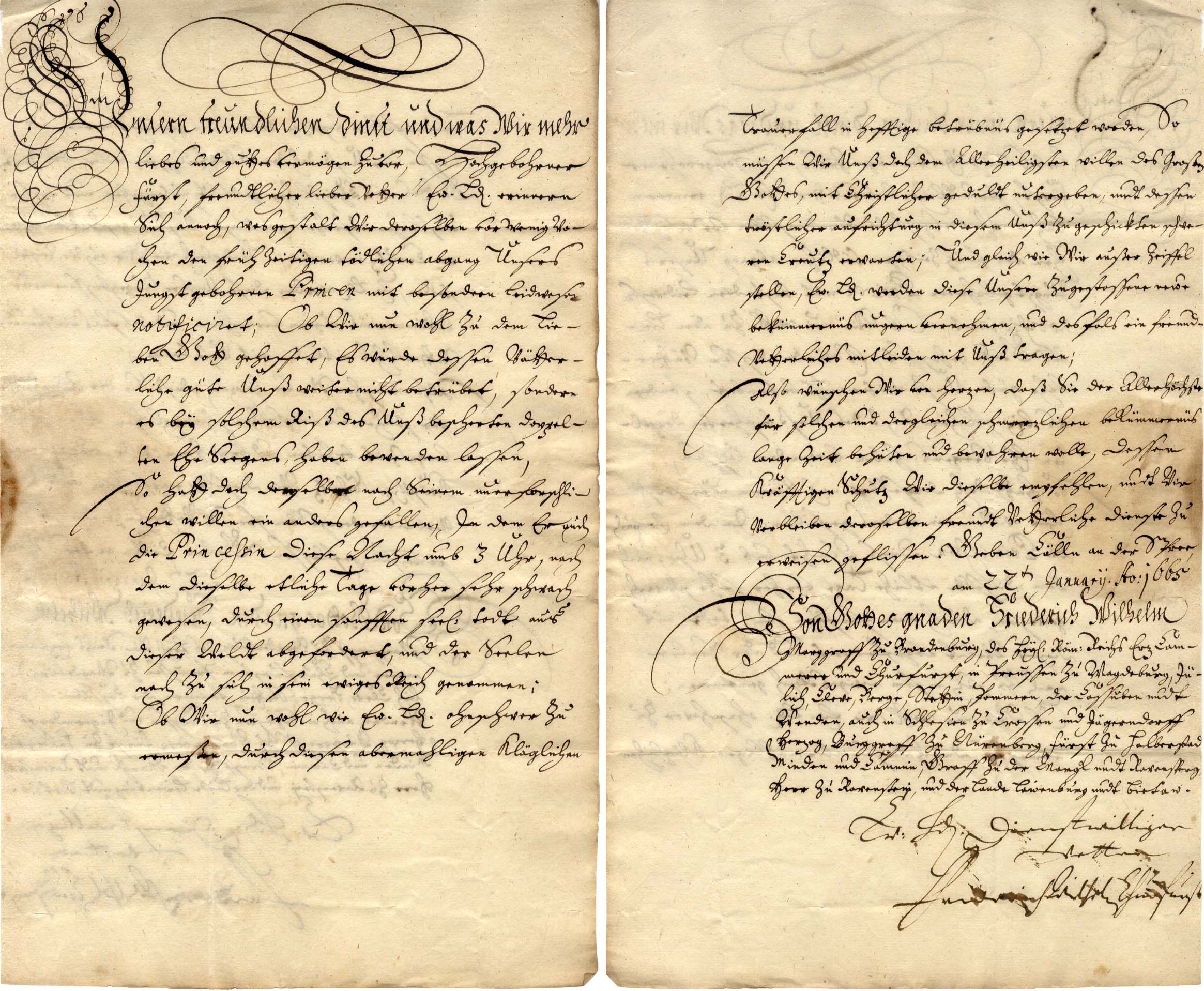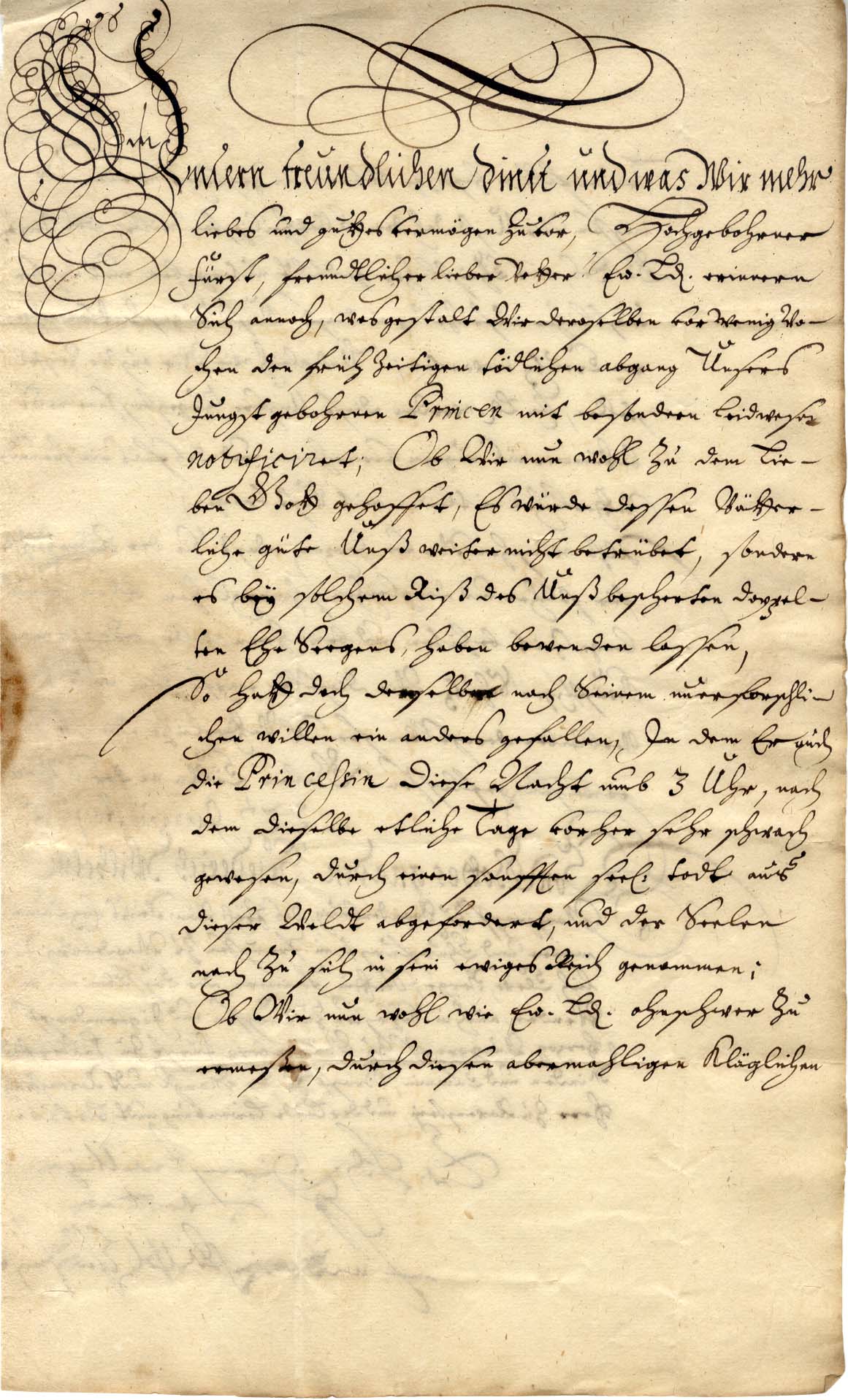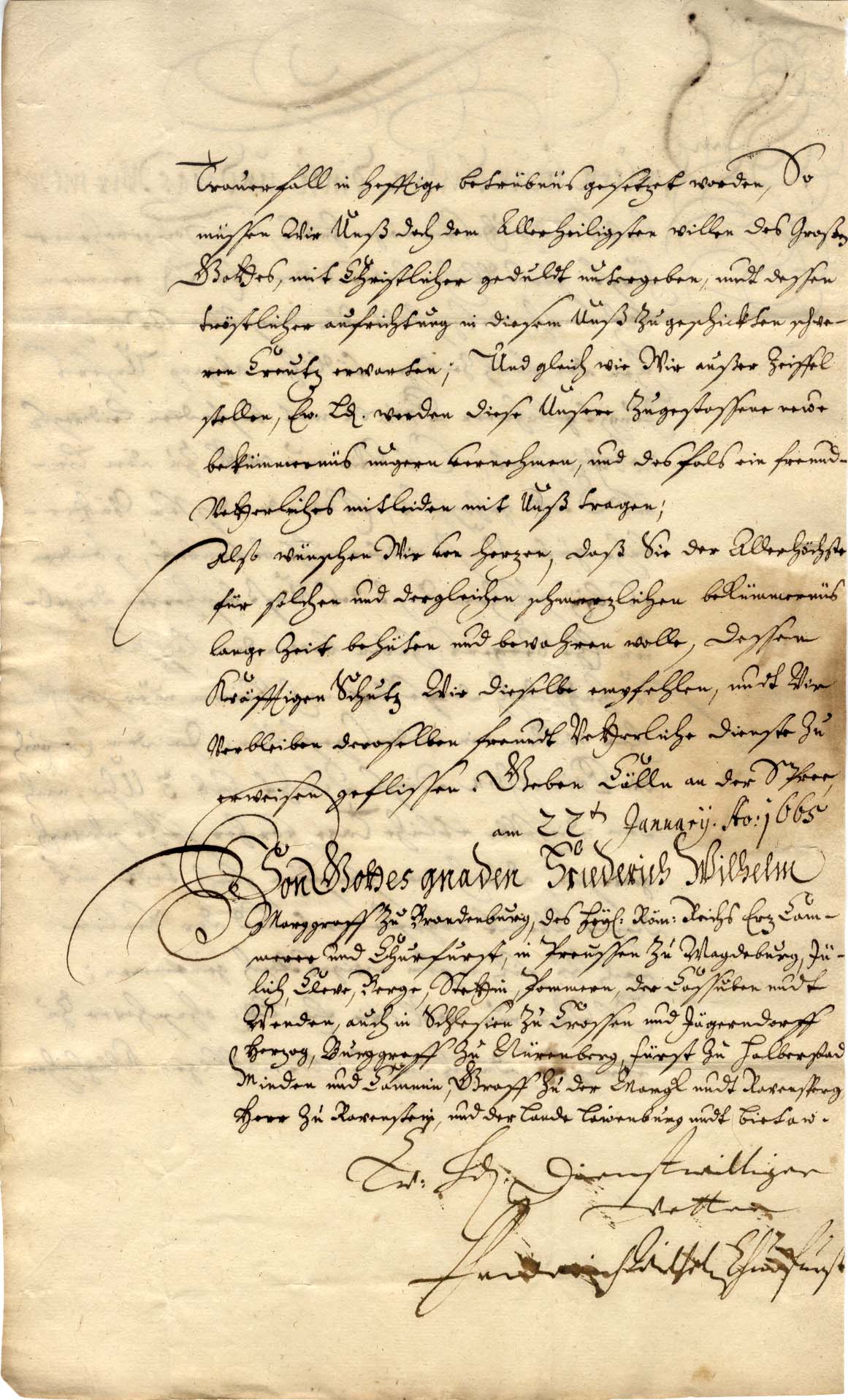Beschreibung
* Der Große Kurfürst erinnert an den „vor wenigen Wochen“ erfolgten Tod eines neugeborenen Prinzen [vermutlich Heinrich (*19. November 1664; † 26. November 1664] und beklagt aktuell den Tod der „Princessin diese Nacht umb 3 Uhr“ [es dürfte sich um Heinrichs Zwillingsschwester Amalia (*19.11.1664) handeln], was ihn sehr bekümmert, aber er habe sich diesem „göttlichem Willen“ zu fügen.
Weitere Infos zur Person
Profession:
(1620-1688) Elector of Brandenburg and Duke of Prussia, thus ruler of Brandenburg-Prussia, from 1640 until his death in 1688. A member of the House of Hohenzollern, he is popularly known as "the Great Elector" (der Große Kurfürst) because of his military and political achievements.
Year of Birth: 1620
Echtheitszertifikat
Zahlung & Sicherheit
Deine Zahlungsinformationen werden sicher verarbeitet. Wir speichern keine Kreditkartendaten und haben auch keinen Zugang zu deinen Kreditkartendaten.



